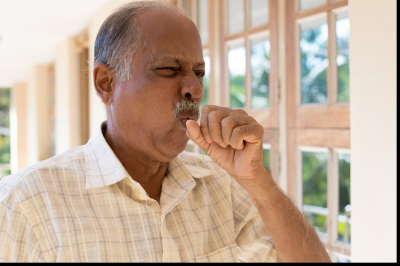Menopause at 40
Menopause is a natural stage in a woman's life that indicates that her reproductive age is over. Generally it does not appear suddenly but it is a gradual process. From the age of 40 the rules are being spaced out and can take several years until the period ends definitively.
Next you have an index with all the points that we are going to treat in this article.
Index
Menopause at 40- 1. Causes
- 2. Perimenopause
- 3. Symptoms
The age of onset can vary, from 40 to 60 years is the usual, placing the average in Spanish women in 51.2 years.
Causes
When a woman is in the fertile stage of her reproductive life, estrogen levels rise and fall throughout the menstrual cycle. These oscillations of the hormone estrogen are controlled by two other hormones released by the pituitary: FSH and LH. The activity of these hormones acts as a signal for ovulation to take place. When the egg is released from the ovary, the follicle that contains it initiates the synthesis of progesterone, preparing the body for pregnancy. When this is not porudce, the progesterone level decreases and menstruation occurs, starting a new menstrual cycle.
Menopause, also known as climacteric, occurs because the body decreases the production of the female hormones estrogen and progesterone. As we have commented, these hormones are responsible for the maturation and release of the eggs. Therefore during the menopause, to diminish these hormones, stop generating eggs and it is no longer possible to get pregnant.
Causes of MenopauseMenopause begins after the last menstruation, but must spend a whole year without menstruation to be considered menopause and to confirm that the woman is no longer fertile and therefore can not have offspring.

Perimenopause
The period before menopause is called perimenopause. It is a stage that lasts between 3 and 5 years near the time of menopause and after the last menstruation. Although not usual, in some women the menopause appears and abruptly end their menses of blow.
At this time, the number of follicles decreases and therefore the production of estrogens and porgesterone decreases gradually. The menses are not monthly but are spaced in time until the last menstruation occurs.
Due to the fluctuations of hormones in this period, it is not possible to control when the next menstruation will happen or if, on the contrary, the previous bleeding corresponded to the last menstruation.
For this reason, ovulation, although alternately, continue to occur so pregnancy is possible. It is therefore recommended to maintain contraceptive methods in case of unwanted pregnancy.
symptom
There is great variation among women regarding menopausal symptoms. 50% of women report having slight physical or mental changes and approximately 25% do not notice any symptoms or changes in their body, while the remaining 25% suffer from serious changes and alterations.
The most frequent symptoms are:
- Hot flashes and flushed skin
- Vaginal dryness
- Decreased sexual desire
- Tendency to weight gain
- Bone decalcification
When menopause arrives many women suffer because they feel old or realize that they are no longer capable of having children; This can cause a number of psychic disorders such as anxiety, increased irritability, nervousness, insomnia problems even coming down to depression.
For this reason it is important to go to the doctor when menopause arrives, explain the symptoms and if the specialist considers it necessary can prescribe hormones to lessen the most serious effects of menopause.
Comments
Post a Comment